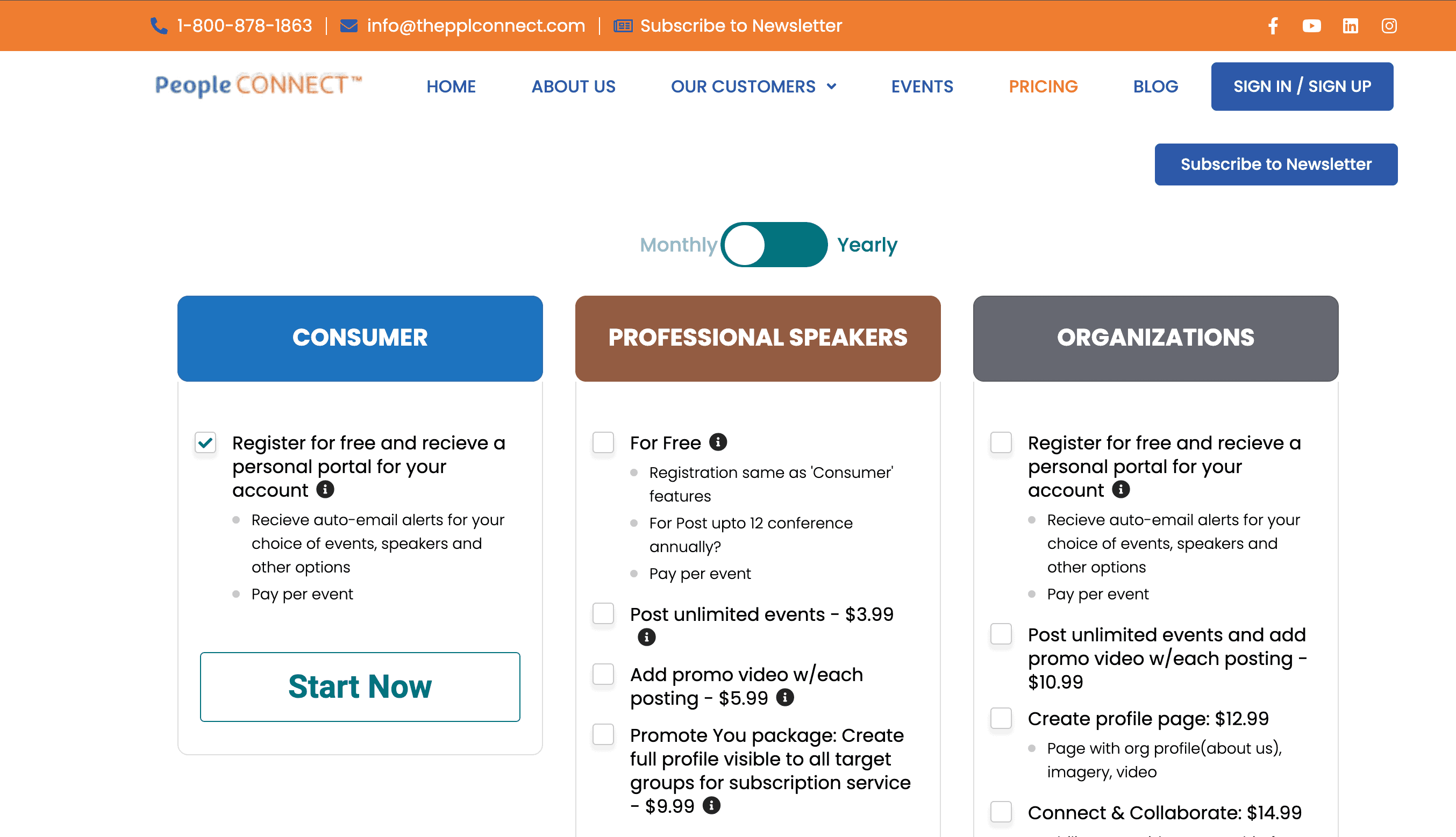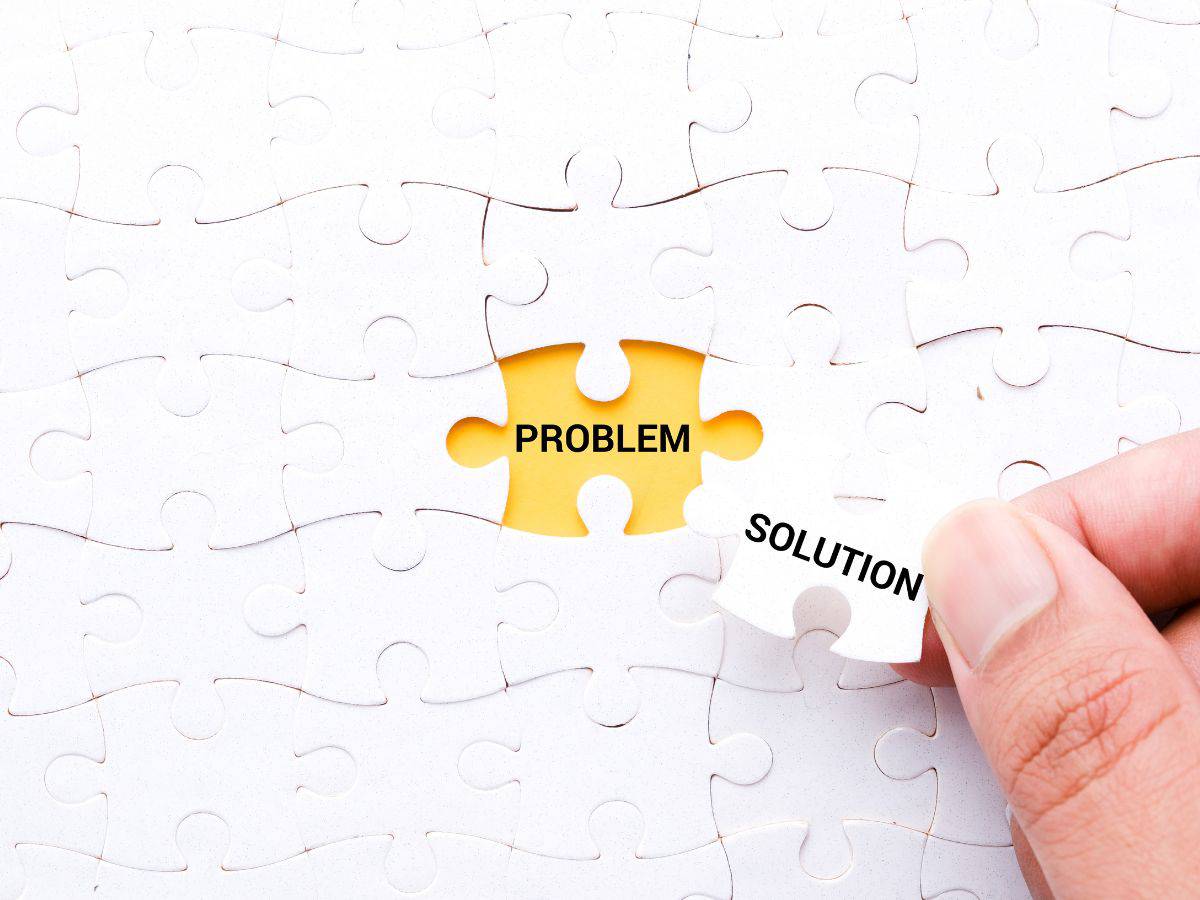Success frequently depends on factors other than a superb product or service in today’s fast-paced and globally linked business environment. It is impossible to overstate the importance of connections and relationships. Business networking events have become essential venues for professionals to build deep relationships, share ideas, and create new opportunities. In this detailed post, we explore the world of business networking events, learning about their importance, methods for success, varieties, advantages, and how they are changing in the digital era.
How to Appreciate the Value of Business Networking Events
Professionals from various industries converge at business networking events, which are frequently held as conferences, seminars, workshops, trade exhibitions, or meet-ups, to communicate, share knowledge, and forge partnerships. These gatherings are more than just social affairs; they are strategic chances to forge alliances, get knowledge from colleagues, and possibly seal deals that could spur innovation and growth.
Entrepreneurs gather in this location intending to establish business ties and identify, create, or seize business opportunities. Your firm’s success depends on you as an entrepreneur making contacts and building your brand. You can meet like-minded people, share a few business ideas, and leave a networking event knowing that you gave your brand some exposure. Practice how to network with professionals for effective networking at business events.
Top Business Techniques for Networking at Events
Attending a networking event requires more than just showing up; to maximize the benefits, thorough planning and intentional execution are required. The following are successful tactics:
Establish Specific Objectives:
Decide what you hope to gain from the event. Clear objectives will direct your contacts, whether you aim to locate possible clients, partners, investors, or to learn more about a particular subject. Get a list of attendees in advance of the event, if at all possible. To find people you wish to connect with, look into their histories, hobbies, and affiliations.
Elevator Speech:
Create a brief yet effective elevator speech to introduce your company and yourself. This enables you to succinctly express your value offer. Active listening is just as vital as talking about yourself or your company, despite how tempting it is. Show a sincere interest in their needs and tales. Learn the art of public speaking with our how-to guide to writing a speech outline.
Meaningful Conversations:
Hold discussions that are deeper than simple small talk. Forge deeper connections by posing open-ended questions and offering insightful commentary.
Dress professionally:
When attending networking events, it’s important to present yourself professionally to make a positive impression. Making sure you dress properly and appropriately for the occasion is one of the most important steps in making a good first impression. Make sure you verify the dress code by asking the organizers if it is not specified in the invitation. When in doubt, always wear business attire in muted colors.
Be rational:
You may come across professionals with more in-depth knowledge and expertise in the sector than you do. Please express your gratitude and respect. If you discover that they provide you with insightful counsel, let them know how much you appreciate it. This communicates your appreciation for their insight and experience while also fostering the mutual respect that is necessary for any successful business relationship. To demonstrate your attention and appreciation, you can also ask further questions or arrange follow-up encounters over a meal or coffee to continue the conversation.
Business cards and contact management:
Trade cards with the intention of following up. Make use of a contact management system to classify and organize your fresh contacts.
Create time for follow-up:
A networking event’s greatest potential frequently rests in the follow-up. Within a few days, send a personalized follow-up email or message to indicate your interest in carrying on the conversation.
Types of Business Networking Events
Events for business networking exist in many forms and sizes, each catering to a different set of objectives and tastes.
- Industry-Specific Networking Events: Attending industry-specific networking events is a great way to meet people in your field and learn more about it. Industry-specific networking occasions frequently involve seminars where industry leaders impart knowledge and news about the sector. If you work in accounting, for instance, you might learn about the most recent modifications to the rules and standards governing accounting, new accounting software, and other pertinent information.
- Conferences and seminars: These larger-scale gatherings bring together professionals for presentations, panel discussions, and workshops as well as subject matter experts from many industries. They offer a chance to converse thoughtfully and learn about the most recent trends.
- Trade shows and exhibitions: At trade shows, products and services within a certain industry are highlighted. They give businesses the chance to communicate with potential customers, partners, and suppliers.
- Meet-ups and mixers are more relaxed get-togethers where business people from all backgrounds can mingle and share ideas. They encourage easy networking in a welcoming environment.
- Training Sessions vs. Workshops: Workshops tend to be more participatory and skill-focused. They offer a setting for improving particular talents and participating in practical learning.
- Business Association Events: There are associations in several industries that plan networking opportunities for its members. These gatherings provide networking opportunities and information particular to the business.
Top Eleven Business networking software for events
Software solutions have become increasingly important in the modern day for improving the effectiveness, participation, and overall experience of corporate networking events. These solutions simplify the registration process, ease communication, and offer information to both event organizers and attendees. Several well-known software programmes are listed below that are made to optimize certain elements of business networking events:
Bizzabo:
Bizzabo is an all-in-one event management tool that supports conferences, trade exhibitions, and networking events. It provides resources for building event websites, controlling registration, and interacting with guests via networking options. Bizzabo improves networking chances by letting attendees connect and organize meetings.
People Connect LLC:
People Connect LLC is a new online networking platform that connects businesses and professional speakers, allowing them to promote their services and events, network with professionals, and get updates on conferences where exhibitor booths are required. In addition to the above, People Connect is a great resource for finding venues for events. With People Connect, you can edit your event page as you will, and add event advert videos, banners/flyers, and the mode of ticketing as you would prefer for the convenience of your attendees.
Eventzilla:
Create event websites, accept registrations, handle payments, gather abstracts, manage speakers, and automate attendee communications with Eventzilla, an all-in-one platform for managing and registering for events. It allows event planners pay-as-you-go or custom pricing and has no monthly expenses. Eventzilla includes various capabilities that are typically reserved for premium users.
Eventbrite:
Eventbrite is a well-known event management platform with lots of tools for organizing, publicizing, and running networking events. It offers resources for processing payments, purchasing tickets, and registering online. Event planners have the ability to edit event pages, monitor attendance, and interact with guests. Participants may quickly register, get event information, and use digital tickets.
LinkedIn:
Users of the LinkedIn platform can create and advertise professional events using the LinkedIn Events feature. It’s an excellent tool for advertising business networking events to a specific group of people. Before, during, and after the event, guests have the opportunity to RSVP, participate in conversations, and network with one another.
Brella:
Brella is a hybrid and virtual event platform that promotes networking. It provides matchmaking algorithms that link participants with comparable objectives and interests. Along with scheduling one-on-one meetings and participating in group conversations, the platform improves networking chances at both live and virtual events.
Swapcard:
Swapcard is a tailored event platform that prioritizes promoting interaction and networking. It provides options including AI-powered matchmaking, interactive networking events, and individualized schedules. Additionally, Swapcard offers in-person, hybrid, and online events.
Whova:
Whova is an event management platform with tools for attendee engagement, agenda management, and event registration. It has networking facilities that let participants connect, message, and arrange meetings with one another. Live polls, Q&A sessions, and virtual business card exchanges are further features provided by Whova.
Grip:
Based on user profiles and goals, algorithms are used by Grip, an AI-powered event networking tool, to connect attendees with possible connections. It provides tailored networking advice and makes one-on-one encounters and group discussions easier.
Pathable:
Pathable is a virtual and hybrid event platform that places a strong emphasis on networking and attendee interaction. It offers tools for setting up custom schedules, attending virtual meetings, and taking part in conversations. Connections between attendees and exhibitors can grow into deep relationships.
Attendify:
Attendify is a platform that enables event planners to build personalized event apps for networking events. To improve networking and engagement, the app has features like attendee profiles, direct messaging, and interactive maps.
Professional Advantages of Business Networking Events
There are several advantages to attending business networking events, and these advantages can have a big impact on a person’s career or the expansion of their company.
Enlarged Network:
An enlarged professional network is the most evident advantage. Your access to resources, information, and opportunities is increased by having a varied network.
Enhanced Visibility:
Attending networking events enables you to present your knowledge, goods, or services to a larger audience, thereby drawing in new customers or business partners.
Group Learning:
Learning from colleagues is an important component of networking events. The experiences of others can shed light on the most effective methods, difficulties, and fresh ideas.
Strong relationships:
Relationships increase the likelihood that others will recommend you to their contacts, increasing your chances of obtaining new business.
Access to Mentors:
You can meet seasoned professionals at networking events who can mentor you and provide advice based on their experiences.
Building Confidence:
Participating in discussions and sharing your thoughts at these events can give you more confidence when speaking in front of groups of people and interacting with them.
Professional mentoring:
Attending networking events enables you to network with influential figures in your field. Establishing these relationships can be a continuous supply of guidance and advice as you work to gain a foothold in the market. In addition to inspiring you, they might provide market insights you can use to advance your firm.
Networking opportunity:
Find regional networking opportunities where you might meet future clients. For instance, if you offer house insurance, gatherings sponsored by neighborhood associations of homeowners or real estate agents could be a potential source of recommendations and opportunities for face-to-face interactions with customers. There, you can interact with potential customers who could later want to purchase your insurance. Opportunities are often found in unexpected places, therefore it’s important to recognize them. Meeting potential clients, partners, investors, or collaborators is made easier at networking events, which can spark the creation of new company initiatives or strengthen already existing ones.
Relationship Building:
In a time when digital communications predominate, networking events offer a singular opportunity for face-to-face contact. Stronger connections, trust, and rapport are fostered among participants as a result of the personal touch and direct participation.
Knowledge Exchange:
Attending professionals provide a plethora of information, experiences, and perspectives. By sharing these resources, people are exposed to new ideas and cutting-edge trends, and intellectual interaction is sparked. Workshops and seminars are frequently essential components of networking events for skill development. Attendees get the ability to develop their leadership, communication, negotiating, or industry-specific experience during these courses.
Industry Visibility:
Networking events can improve a company’s reputation and brand recognition. Competitors and prospective clients may take notice of a well-presented presence.
Networking occasions encourage emotional intelligence by challenging attendees to negotiate varied social dynamics, pick up on nonverbal signs, and adjust to distinct personalities.
Challenges in Business Networking Events and Solutions
Even though corporate networking gatherings provide many benefits, there are some difficulties as well. For networking to be successful, these issues must be acknowledged and solutions must be put in place to address them.
Limited self-introductions: As we all know, quick introductions might lead to superficial interactions and conversations. To create lasting connections, make an effort to go deeper into conversations.
Time Restrictions: Juggling conversations with several people in a short amount of time can be challenging. Note, spend your time wisely, and be aware of when to politely end talks.
Follow-Up Fatigue: The flood of follow-up emails and messages that come after an event can be exhausting. For authenticity, you must prioritize and personalize your responses.
Networking Burnout: Excessive event attendance might result in burnout. Considering your objectives and resources, make wise event selections.
Dread of Rejection: When striking up a discussion with a stranger, very often, this dread of rejection may surface. Just keep in mind that networking is a two-way street and that most people are willing to engage in fruitful conversations.
Top Evolutions in Business Networking Events
The way we communicate and engage has changed significantly in the digital age. Although virtual platforms have increased the reach and accessibility of networking events, in-person networking still has its advantages. Meeting new people or expanding your LinkedIn contacts are only the beginning of networking. It provides a way to generate long-lasting, mutually beneficial relationships and a channel for the exchange of knowledge and helpful information. Over the years, networking has evolved from more “traditional” means like joining clubs or going to business events to now participating in online platforms and social channels, which have opened up the possibility of connecting with individuals around the world. Think about the following advancements in the industry:
- Virtual networking: By removing geographical restrictions and accommodating hectic schedules, online platforms allow professionals to attend events remotely.
- Hybrid Events: A hybrid strategy mixes real-world and digital components, giving participants a choice in how they interact. This model takes different tastes and situations into account.
- Digital Business Cards: By eliminating the need for physical cards, digital business card platforms, and apps make it easier to organize and communicate contact information.
The Predicted Global Future of Business Networking Events
Business networking events have a bright future as technology continues to advance and change how we communicate. Businesses have long believed that sustained expansion is the key to success. Usually, this entails coming up with fresh strategies for expanding target markets through collaborations or new products.
However, when it comes time to evolve with new technology and the methods of the future, this form of progress might occasionally be constrained. Even while new collaborations and products frequently result in increased sales, keeping up with trends and remaining relevant should also be a priority. Hybrid events and virtual office spaces are the future of effective business and networking in today’s corporate environment.
AI-Driven Networking: By matching participants based on their profiles and goals, artificial intelligence can promote more fruitful and useful relationships.
Networking with augmented reality (AR): AR could produce engaging networking events that let participants communicate virtually as if they were in the same place.
Enhanced data analytics: Attendees may be able to improve their methods by learning more about the efficacy of their networking initiatives thanks to advanced analytics.
Sustainable Networking: As awareness of environmental issues grows, events may put a strong emphasis on sustainability by implementing eco-friendly procedures to reduce their carbon imprint.
Smaller, more focused events that cater to particular businesses or interests in order to develop stronger connections may become more popular.
Conclusion
Business networking events serve as dynamic platforms that combine online interactions and in-person relationships. Their importance rests in developing connections, exchanging information, spotting possibilities, and advancing professional development. Strategies for success, embracing digital transformations, and problem-solving will continue to be crucial as professionals traverse the changing networking scene. The core of networking events’ lasting usefulness is ultimately human interaction, teamwork, and idea sharing.







